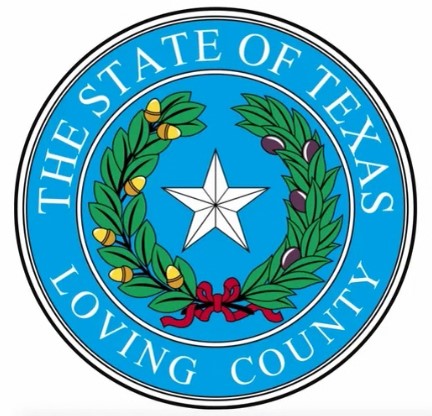Loving County wraps up one of its ongoing story lines.
It might have been the longest election campaign for the shortest office term in recent Texas history.
Loving County Justice of the Peace Angela Medlin, County/District Clerk Mozelle Carr and Commissioner Ysidro Renteria all were elected into office in 2022. But a series of court challenges brought by their opponents concluded that a dozen voters who had cast ballots didn’t really live in this sparsely populated county near the New Mexico border.
Because the margin of victory in each of the three races had been 12 or fewer votes, Loving County was ordered to conduct an extremely rare election do-over.
Yet the courts move slowly. The reelection was finally held three years after the original vote – meaning only a single remaining year in office was at stake.
Thanks to Loving County’s tangled history of voter shenanigans, the Texas Secretary of State took the unusual step of sending inspectors to monitor the races in the least populated county in the country. Sheriff Dave Landersman, who doubles as the county voter registrar, said the agency sent an inspector out for early voting, and another for Election Day.
On Tuesday, in what would be considered landslide wins – even though the total votes cast numbered only in the dozens – the incumbents were all easily reelected to their offices. Medlin bested challenger Amber King 69 to 28, Carr easily beat Holly Jones 69 to30 and Renteria outpaced Alan Sparks, 11 to 5.
Experts said scrapping the results of an entire election and conducting it all over again is an uncommon event. “Do-over elections are very rare,” said Derek Muller, a nationally recognized elections expert who teaches at Notre Dame Law School.
Steve Huefner, a professor at Ohio State University’s Moritz College of Law who has studied contested elections, said one reason for the rarity was that challenges typically had to check two boxes. Not only did a court have to determine that improper voting took place; it also had to show that the number of contested ballots actually could have swung the election.
As a result, Huefner said, election redos are almost always in small, local races, where a contest can be reversed by a relatively small number of disputed votes – “what we call the margin of litigation,” he said.
Following the November 2022 general election, 21 Harris County Republican candidates filed grievances citing alleged irregularities and asking for do-overs. But the victory margins were large enough that most of the challenges failed.
In May 2024, however, a state district court judge found the 1,430 improper votes in the race for the 180th District Court judge could have flipped the result of the contest, in which incumbent Democrat DaSean Jones beat Republican Tami Pierce by just 449 votes. A do-over was ordered, but before it could be held Jones resigned and Gov. Greg Abbott appointed Pierce to the bench.
Huefner said another reason do-over elections are uncommon is they can be seen as unfair, favoring candidates with more money and staying power. Thanks to the long waits between the original and redo votes, he added, the electorates often aren’t even the same.
Susan Hays, the attorney representing the three challengers, blamed both factors for her clients’ losses on Tuesday. “The failure of the courts to expedite this case was an immense failure of democracy,” she said.
See here, here, and here for the background. I will say again, the simplest answer here is to abolish Loving County as a political entity and fold it all back into Reeves County. Having a county with that small a population and that much oil money is an unstable combination, as all these events have shown. The fix is simple, if the Lege cares to take it up.

